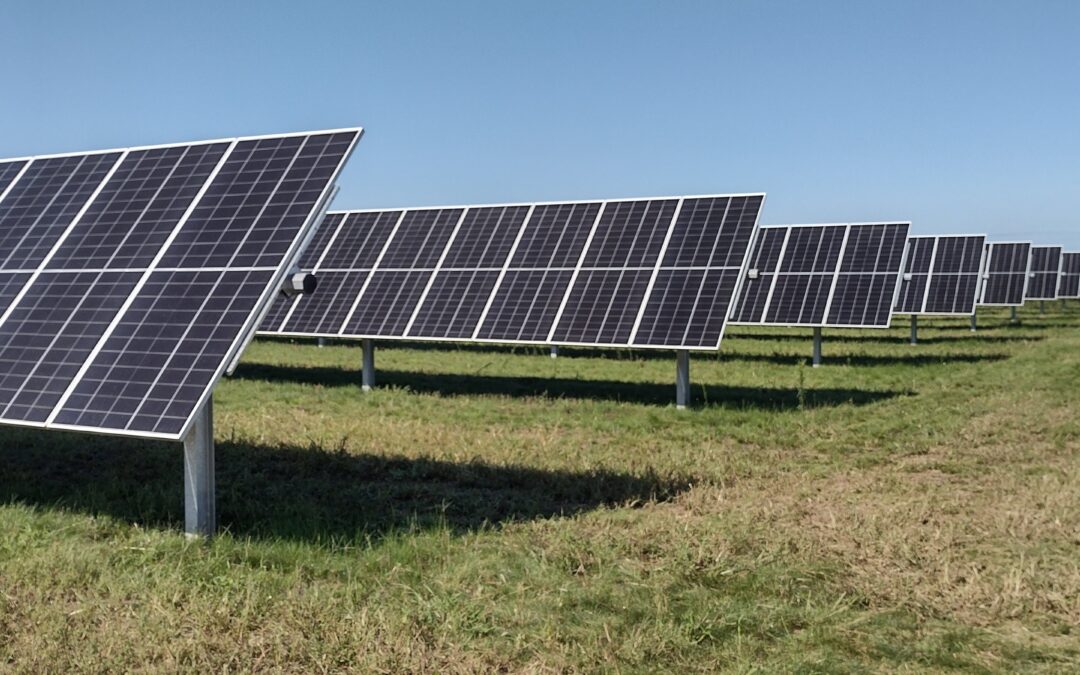
by Michael Vickerman | Sep 13, 2023 | PSC Priorities, Public Service Commission, RENEW Wisconsin, Renewables, Solar, Utilities
A 200-megawatt (MW) solar project, Silver Maple Solar, has been proposed in Fond du Lac and Winnebago Counties. If approved, Silver Maple Solar is expected to begin producing enough clean energy to power 35,000 Wisconsin homes by the end of 2025.
Solar power projects larger than 100 MW must gain approval from the Public Service Commission of Wisconsin (PSCW) before they can proceed to construction. Along the way, there are opportunities for public comment, including at the PSCW. Earlier this summer, RENEW Wisconsin submitted testimony in support of Silver Maple Solar to the PSCW. Now that the public comment period is open, you can share your support for this project as well.
Silver Maple Solar represents a significant economic investment in rural southeastern Wisconsin, providing steady revenues to area landowners and communities while generating emission-free renewable electricity for more than 30 years. The developer of the project, Leeward Renewable Energy, has provided a high-level overview and a map of the project to help the public better understand its benefits.
Since 2019, the PSCW has issued approvals for 17 solar power projects across Wisconsin, totaling 3,249 MW. With the addition of Silver Maple, solar energy will make up 10% of Wisconsin’s electricity production, the highest share for a state in the Upper Midwest.
Help us demonstrate Wisconsin’s enthusiastic support for projects like this by submitting a comment in support of Silver Maple Solar. Be sure to specifically reference the project and the benefits that it can bring to Wisconsin. The deadline to submit comments is October 13, 2023.
We’ve included a sample message to help you get started. Please keep in mind that the PSCW allows one comment per case and that customizing your message will have a greater impact.
Sample Comment
I’m writing in support of the Silver Maple Solar, under review in Docket No. 9813-CE-100. This project would support local economies and keep energy dollars in state by producing homegrown, renewable energy right here in Wisconsin.
Beyond the economic benefits, the Silver Maple Solar project will also help to displace carbon dioxide, support grid stability, and provide Wisconsinites with an affordable source of electricity. With available land and appropriate infrastructure, projects like this make sense for Wisconsin.
I respectfully encourage the PSCW to rule that Silver Maple Solar is in the public interest and issue a permit enabling the project to proceed to construction. Thank you for your consideration of my views.
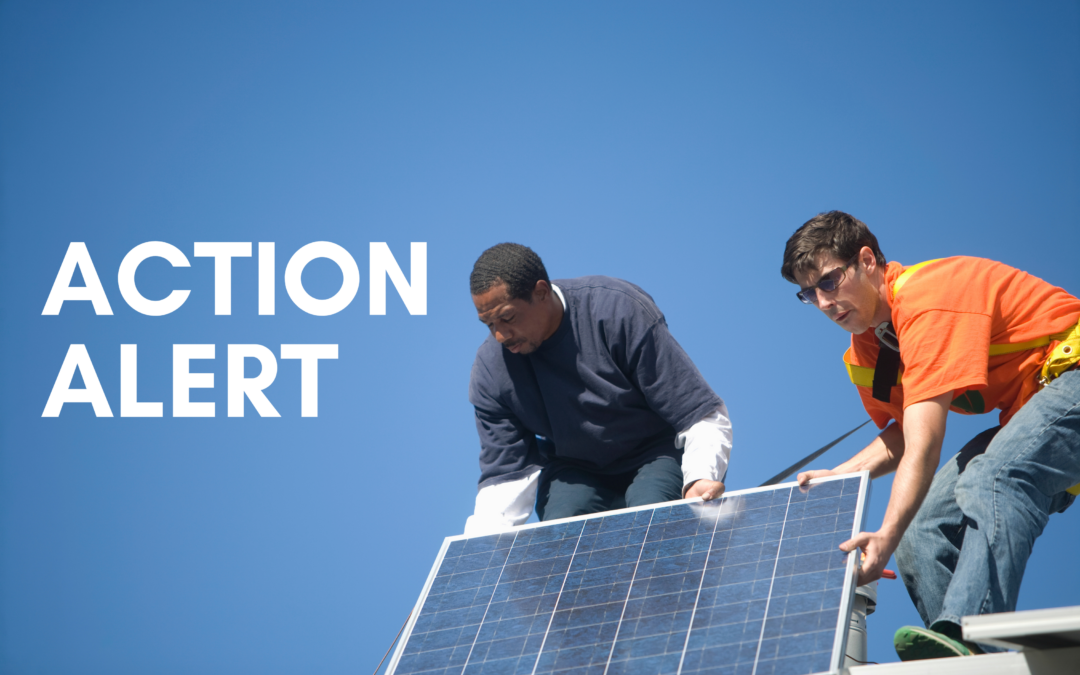
by Alex Beld | Aug 24, 2023 | Action Alert, Advocacy, PSC Priorities, Public Service Commission, Solar
Net metering is a utility billing policy that enables customers who generate electricity from their own solar systems to receive a bill credit for any energy they export to the grid. This arrangement encourages residential and business customers to invest in solar power, reducing carbon emissions and providing substantial economic benefits to their neighbors and communities.
According to Solar Energy Industries Association (SEIA), “traditional net energy metering (NEM) is fundamentally a bill credit that represents the full retail value of distributed electricity delivered to the distribution system, and has been a critical policy for valuing and enabling distributed generation.”
If passed, this utility proposal will depress demand for rooftop solar, leading to layoffs for local clean energy workers, creating new hardships for customers and local governments in meeting their clean energy goals, and moving solar out of reach for many Wisconsinites.
We’ve included sample messages for you to submit comments to the PSCW. The PSCW allows one comment per case. As you prepare your comments, keep in mind that customizing your message will have a greater impact. Comments are the most effective when they are short, to the point, and have a personal perspective. Please take the time to share why net metering is important to you! MGE’s comment period is open through September 26.
Sample Message – MGE:
I’m writing in support of fair net metering policies for Wisconsin. The changes to net metering under review in Docket No. 3270-UR-125 would make investing in rooftop solar harder and more expensive.
Net metering empowers Wisconsinites to take control of their energy consumption, reduce their carbon footprint, and contribute to a cleaner, more sustainable future. It is the single most important policy enabling every Wisconsin home, farm, business, and institution to own solar. By reducing strain on the grid, stabilizing energy prices, and fostering job growth, the benefits of net metering extend well beyond the solar customer.
Madison Gas and Electric’s proposal before the Public Service Commission will unfairly reduce the compensation customers receive for the energy they produce with their investment in solar. In addition, the compensation rates will be subject to change every year, creating uncertainty over the system’s value in the long term. Advancing this proposal will make it more difficult for people who cannot afford the upfront cost of purchasing solar panels to find the financing they might need, and will discourage the adoption of rooftop solar, negatively impacting our local economy.
Rooftop solar can be a boon for historically marginalized communities, providing access to clean energy and reducing utility bills for households disproportionately burdened by high electricity costs. These savings free up resources for other essentials like education, healthcare, and better living conditions. Our energy policies should be making it easier for all Wisconsinites to reap the benefits of clean energy.
Now is not the time to derail our progress on distributed solar in Wisconsin!
Thank you for your support on this important issue.
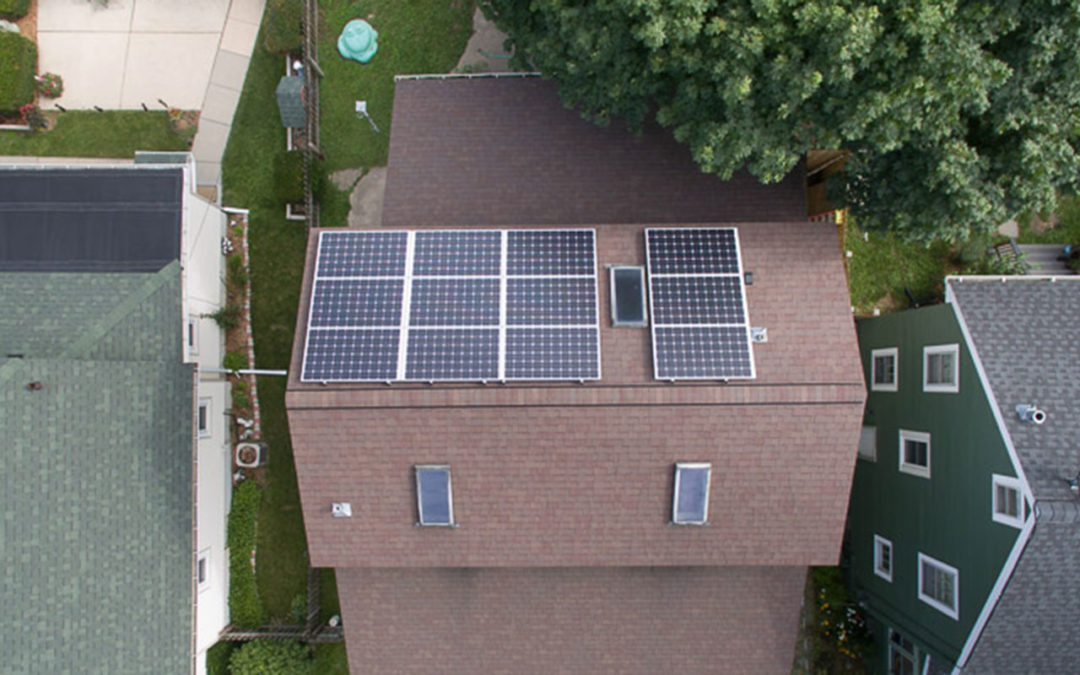
by Michael Vickerman | Dec 2, 2022 | PSC Priorities, Public Service Commission, Solar
Public Service Commission affirms the legality of a private contract between a utility customer and a solar provider
For a central Wisconsin family seeking to supply their home with affordable solar power, December 1, 2022, was a day worth celebrating. The Public Service Commission (PSC) ruled that their bid to access electricity under contract from a third-party-owned solar PV system on their rooftop would not conflict with Wisconsin’s public utility law.
This Declaratory Ruling arose from a petition filed in May by Vote Solar, a national solar energy advocacy organization, on behalf of one of its members, a family residing in Stevens Point. The ruling clears the way for the Vote Solar member to host an eight-kilowatt solar array and pay for that electricity under contract with a third party instead of purchasing the system and absorbing the costs upfront. The third-party provider named in this petition is Northwind Renewable Energy Cooperative, based in Amherst.
While existing law does not prohibit third-party ownership of generating equipment located on the customer’s premises, it does not expressly sanction this type of arrangement either.
In their testimony and briefs opposing Vote Solar’s petition, electric providers argued that any provision of electricity to the family by a third party, whether under a lease or a power purchase agreement, would automatically make Northwind a public utility operating illegally in another utility’s territory. Given that Wisconsin utilities have in recent years denied interconnection to customers seeking to host third-party-owned solar PV systems, Vote Solar felt it necessary to request a Declaratory Ruling on behalf of its member to clarify that the family is not “the public” and that Northwind is not a public utility. Vote Solar was represented by attorney Tim Lindl of Keyes & Fox LLP in this proceeding.
As noted in Vote Solar’s reply brief, “the utility position that two homes with the same equipment, installed the same way, connected to the same utility—with absolutely no functional difference—should be categorized differently simply because of the way the system is financed defies logic and common sense.”
A number of stakeholder comments filed in this proceeding took aim at that argument, such as the example below from Kurt Reinhold, president, and managing director of Legacy Solar Cooperative.
“Anytime someone replaces older HVAC equipment or older lighting fixtures, they are doing what they can (behind the electric and gas meters) to reduce their power demands and energy needs. It’s the same thing with solar power. If a family or an institution decides they want to use solar power to meet some of their power and energy needs, and rely less on fossil fuels, and lower their electric bills in the process, then no utility or regulatory authority should impinge upon the rights of the customer to do that. It should not matter if they take a loan, pay cash, or enter into a service agreement or lease to do so.”
Contrary to the utilities’ hyperbole, affirming the legality of the family’s PV project will not lead to dismantling Wisconsin’s regulatory utility model, as demonstrated in neighboring states like Iowa. As noted by RENEW Policy Director Michael Vickerman:
“Back in 2014, the Iowa Supreme Court ruled in favor of a similar petition filed by a local solar contractor, affirming the legality of third-party-owned generation serving host customers. That decision removed a significant economic barrier that kept nonprofit entities from pursuing onsite solar power. Access to financing opened the solar door to many school districts and local governments across the state. All have reported significant savings from the solar installations serving their facilities.”
Vickerman added, “There is simply no basis for believing that our state’s experience with third-party-financed distributed energy systems would track any differently than what we’ve seen in Iowa. But if we want to broaden solar power’s affordability and make it accessible to low-to-middle income residential customers, small businesses, hospitals, schools, local governments, places of worship, CAP agencies, and other nonprofits, we will need to allow customer use of financing from third-party institutions consistent with the framework described in the Vote Solar petition.”
Several commenters in the Vote Solar docket referenced a number of innovative clean energy projects that used third-party financing. Foremost among them is Bad River Tribe’s Ishkonige Nawadide solar microgrid project commissioned in 2021, consisting of 524 kW of solar and 1,000 kWh of storage capacity. As described by Dan Nordloh, senior vice president, and general manager of EnTech Solutions:
“As a clean energy company based in Menasha, we recently completed a microgrid project for the Bad River Tribe in Ashland using TPF [third party financing], sometimes referred to as an energy-as-a-service model. In 2016 a storm wiped out power to the tribe, leaving them stranded for days… We were able to assist them with the financing because the tribe is a sovereign nation and not subject to Wisconsin law. This system would not have been possible without the flexibility of TPF [third party financing].”
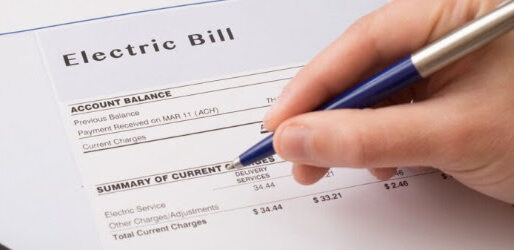
by Andrew Kell | Jul 21, 2022 | Action Alert, Advocacy, Legislative Watchlist, PSC Priorities, Solar
RENEW has assembled a team of experts to develop a comprehensive framework of Distributed Generation (DG) buyback rates as a counter-proposal to utility applications. DG buyback rates determine payments for ALL non-utility-owned electricity generation at the distribution level. For more information, please read this short RENEW parallel generation blog.
The Public Service Commission (PSC) must hear from clean energy advocates in each case. These PSC decisions will impact businesses, local governments, schools, hospitals, organizations, and individuals. We thank all of the clean energy supporters that submitted comments.
Comment periods are now closed for all cases.
WE ENERGIES (6630-TE-107)
WPS (6690-TE-114)
MGE (3270-TE-114)
XCEL Energy (4420-TE-109)
Alliant Energy (6680-TE-107)
RENEW appreciates the supporting comments that were submitted in favor of RENEW’s comprehensive framework for buyback rates. We believe this framework values DG, accelerates carbon emission reductions and provides a path for Wisconsinites to participate in building a clean energy future. Once again, more detail is provided in RENEW’s blog, Buyback Rates and the Business Case for Distributed Generation in Wisconsin.
For additional information on this topic, please contact Andrew Kell, Policy Analyst at RENEW.
Thank you for being a champion of clean energy in Wisconsin!
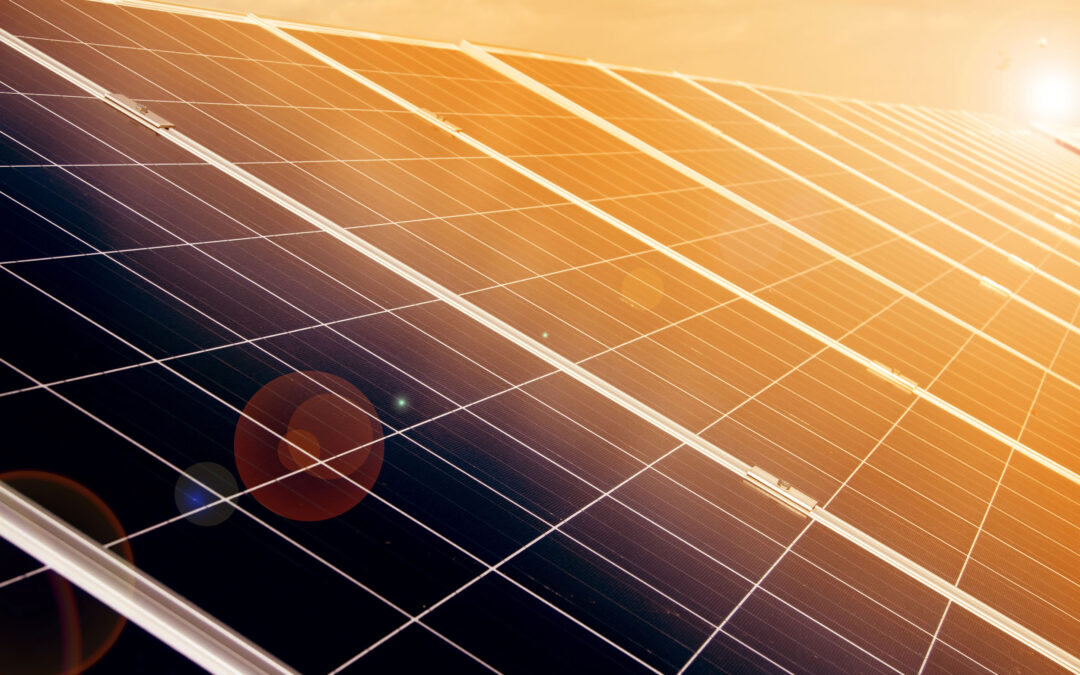
by Michael Vickerman | Jun 3, 2022 | Advocacy, PSC Priorities, Public Service Commission, Renewables, Solar
On May 26th two petitions were filed at the Public Service Commission (PSC) seeking rulings to clarify the long-simmering issue of third party-financed renewable energy generation serving individual customers behind their meters.
In one of the petitions (Docket No. 9300-DR-106), Vote Solar, a national nonprofit advocacy organization with 500 members residing in Wisconsin, asks the agency to affirm the legality of a tax-financed solar system installed at the residence of one of its Wisconsin members. In the other petition (Docket No. 9300-DR-105), Custer-based Midwest Renewable Energy Association seeks a similar affirmation, based on relevant case law precedents, enabling customers to host third party-financed electric generation systems on their premises without fear of being designated a public utility. You can read the petitions online at the above-referenced docket numbers on the PSC’s website.
Although the two petitions take different approaches to the legal question at issue, a positive ruling from the PSC on either or both of these filings would achieve the desired result: the ability of individual customers to access electricity generated on their premises from installations owned by third parties. For that reason, RENEW is urging stakeholders—solar contractors, climate and energy justice advocacy organizations, local governments, and legislators–to signal their support for both petitions through statements of support filed at the PSC.
When the PSC receives a Declaratory Ruling petition, it is obligated to open a 20-day initial comment window prior to deciding whether or not to accept that petition. Accepting the petition is a prerequisite for rendering a decision on the legal merits of the case.
RENEW is asking stakeholders to submit statements in both proceedings urging the PSC to accept the petitions and convene a proceeding to affirm third-party financing on its merits, emphasizing the following themes:
- Businesses need clarity on this legal question before they will commit to providing renewable energy to customers with equipment they would own. Though customer demand for solar PV is growing, the ongoing legal ambiguity acts as a powerful disincentive to businesses contemplating investments in equipment and staff to serve that part of the market. The risk of fighting expensive legal battles with utilities also diminishes business appetite for doing business in Wisconsin.
- Third-party financing eliminates the upfront financial commitment that often stops low and middle-income households from pursuing solar. As a market-building tool, third-party financing can expand the residential customer base more effectively than either rebates or tax credits. Third-party financing is a linchpin mechanism for securing a just energy transition that engages customers of all income levels.
- The lack of legal clarity on this issue is an unjustifiable restriction on property owners’ ability to supply themselves with clean energy produced on their premises. The PSC has had several opportunities in recent years to settle this issue but declined to do so. It is past time for the PSC to clear a path for the homeowners, businesses, and nonprofits desiring to access onsite solar power owned by a third party.
Currently, Wisconsin case law allows for third-party financing of energy projects, but some electric utilities have denied interconnection to installations that would have been owned by third parties. They contend that such installations should be regulated as public utilities, even though they are designed to supply energy to only one entity: the host customer. In our view, a business that installs and operates energy equipment on a customer’s property for that customer’s exclusive use should not be regulated as a public utility.
PSC affirmation for third-party financing is essential to spreading the benefits of clean energy to all Wisconsin utility customers.
The deadline for submitting comments is June 14th.
If you have questions or represent a business or organization that would like to engage on this issue, please contact Michael Vickerman at mvickerman@renewwisconsin.org.
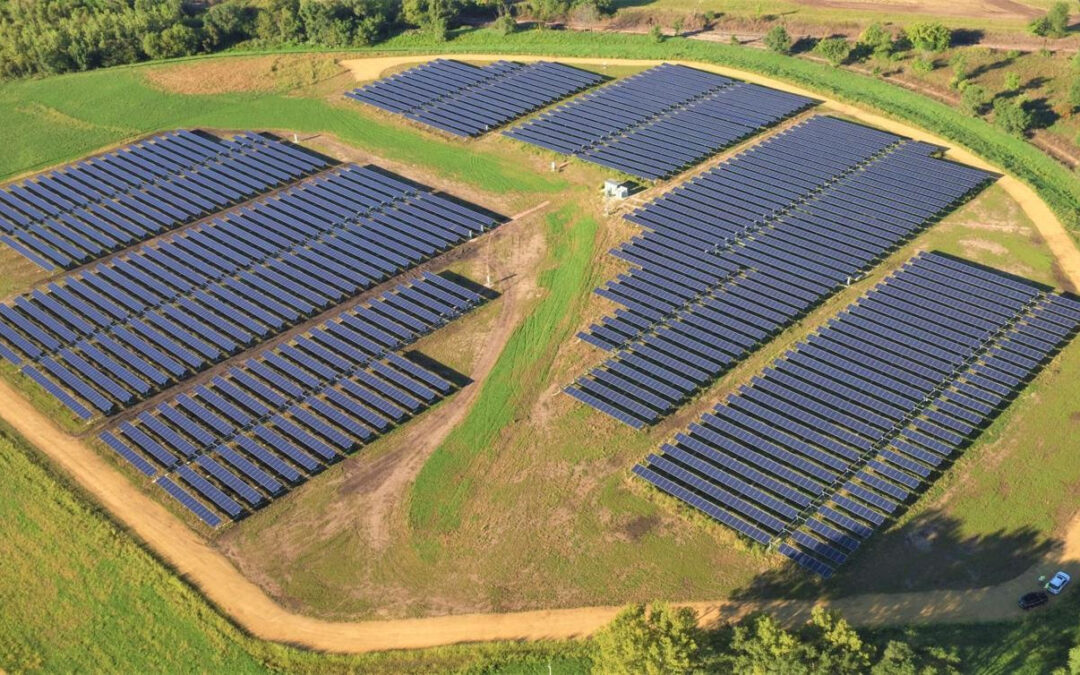
by Michael Vickerman | Apr 28, 2022 | Advocacy, Press Release, PSC Priorities, Solar
But a federal anti-dumping investigation jeopardizes solar power build-out in Wisconsin
Having secured approval today from the Public Service Commission (PSC) to build six more solar power plants, Alliant Energy’s Wisconsin affiliate is on a trajectory to source 20% of its electricity from solar power by 2025.
The PSC decision enables Alliant to construct and operate 414 megawatts (MW) of solar generating capacity in Dodge, Grant, Green, Rock, and Waushara counties. In combination with the 675 MW of projects approved in April 2021, Alliant’s solar power portfolio now consists of a dozen projects totaling more than one gigawatt, or 1,089 MW. Alliant’s approved solar projects are listed in the table below.
Over the last three years, the PSC has approved 1,850 MW of utility-owned solar generating capacity in Wisconsin. Of that total, nearly 60% of that generation will serve Alliant Energy’s Wisconsin customers.
“Today’s approval by the PSC affirms the uniquely valuable set of benefits that large-scale solar will bring to Wisconsin’s power industry,” RENEW Executive Director Heather Allen said. “When placed in service, these 12 solar projects will support the grid long after Alliant retires its coal-fired power plants, generating clean, affordable energy here in Wisconsin while delivering a reliable revenue stream to participating landowners and host communities.”
But a recently initiated U.S. Commerce Department investigation into alleged unfair trade practices has already begun to disrupt utility-scale solar farm development nationwide, including projects in Wisconsin. If not resolved soon, the collateral damage from this investigation will likely spread to the Alliant solar portfolio approved today, causing construction delays and increasing costs.
The investigation, which could extend until August 28th, targets solar products imported from Cambodia, Malaysia, Thailand, and Vietnam. Eighty percent (80%) of all U.S. solar panel imports are sourced from these four countries. If an unfair trade practice is identified, the Commerce Department is empowered to remedy the situation with very high tariffs on panels. For that reason, manufacturers in the targeted countries have been forced to cease production of solar panels destined for U.S. projects.
“Not even a month has gone by, and it is already disrupting solar projects at all stages of the development pipeline,” Allen said. “We are concerned that this investigation can do serious damage to the solar build-out now underway as well as undermine Wisconsin’s Clean Energy Plan.” Allen added: “We ask Senators Baldwin and Johnson and Wisconsin’s Congressional delegation to stand up for Wisconsin jobs, Wisconsin farmers, and Wisconsin’s rural economy and urge the Commerce Department to issue a negative ruling on this matter as soon as possible.”
APPROVED ALLIANT ENERGY SOLAR PROJECTS
| Docket: 6680-CE-183
Approved April 28, 2022 |
| Project name |
Location (county) |
Capacity (in MW) |
| Albany |
Green |
50 |
| Beaver Dam |
Dodge |
50 |
| Cassville |
Grant |
50 |
| Paddock |
Rock |
65 |
| Springfield (Lomira) |
Dodge |
100 |
| Wautoma |
Waushara |
99 |
| Subtotal |
414 |
| Docket: 6680-CE-182
Approved April 21, 2021 |
| Project name |
Location (county) |
Capacity (in MW) |
| Bear Creek |
Richland |
50 |
| Crawfish River |
Jefferson |
75 |
| Grant County |
Grant |
200 |
| North Rock |
Rock |
50 |
| Onion River |
Sheboygan |
150 |
| Wood County |
Wood |
150 |
| Subtotal |
675 |
| Grand total |
1,089 |






